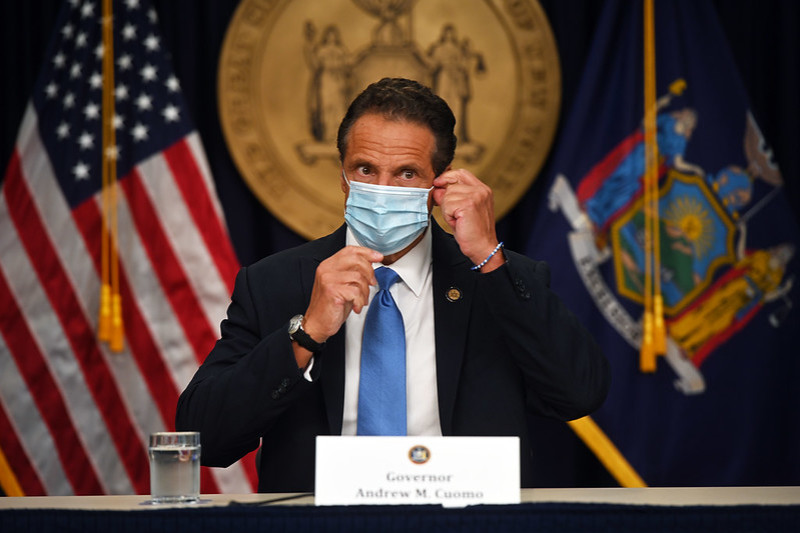
A Manhattan appeals court ruled on Monday that New York Gov. Andrew Cuomo's COVID restrictions on places of worship violate the Constitution and discriminate against religion.
The panel of judges at the US Court of Appeals for the Second Circuit unanimously ruled in favor of the plaintiffs-appellants-the Orthodox Jewish group Agudath Israel of America, two synagogues, and the Roman Catholic Diocese of Brooklyn-saying that limiting the number of attendees in houses of worship "discriminates against religion on its face."
Circuit Judge Michael Park wrote that imposing attendance caps for religious gatherings violates First Amendment rights.
The ruling further says that imposing limits for people in houses of worship are "far more severe than has been shown to be required to prevent the spread of the virus at [Appellants'] services," particularly because the governor has not shown proof of any COVID outbreak in the said houses of worship.
"Most obviously, the 10- and 25-person restrictions do not account in any way for the sizes of houses of worship in red and orange zones. Two Diocese churches originally affected by the Order seat over 1,000 people, and more than ten accommodate over 700. Likewise, Agudath Israel of Kew Garden Hills has a capacity of over 400," the ruling stated.
The ruling says it is "hard to believe" that allowing more than 10 people in a church that seats 1,000 or in a synagogue that seats 400 "would create a more serious health risk than the many other activities that the State allows."
In November, the Supreme Court banned New York from implementing attendance caps in churches and synagogues and ordered Cuomo to stop enforcing the "cluster action initiative" on religious gatherings.
Cuomo's cluster action initiative classified certain areas based on color codes. In red zones, for example, houses of worship must accommodate only 25% of the maximum occupancy or 10 people, whichever is less.
The Supreme Court said Cuomo's regulations "single out" houses of worship and imposes 'very severe restrictions" on religious gatherings that fall on red or orange zones.
Justice Neil Gorsuch, in his ruling, acknowledged the health risks involved because of the coronavirus pandemic but emphasized that color-coded restrictions such as Cuomo's cluster action initiative should not be tolerated, especially when commercial establishments like liquor stores have been given the green light to reopen.
Churches and synagogues are not the only ones affected by Cuomo's restrictions. Restaurants were greatly affected when the New York governor implemented a ban on indoor dining on Dec. 14.
Cuomo's order said restaurants in the city are only allowed to sell food to go, for outdoor dining, and for delivery. One restaurant described the indoor dining ban to be a "completely schizophrenic behavior" that is "beyond any logical reasoning."
A group of New York City restaurant owners petitioned the governor to allow indoor dining. Many restaurants are struggling financially because of the lockdowns.
More than 200,000 employees already lost their jobs during the city's first lockdown. When the restaurants reopened, 100,000 jobs became available, but that could be endangered by the governor's new indoor dining ban.
In a combined effort to protest the said ban, a group of restaurant owners in New York permanently banned Gov. Cuomo from entering their shops.
























